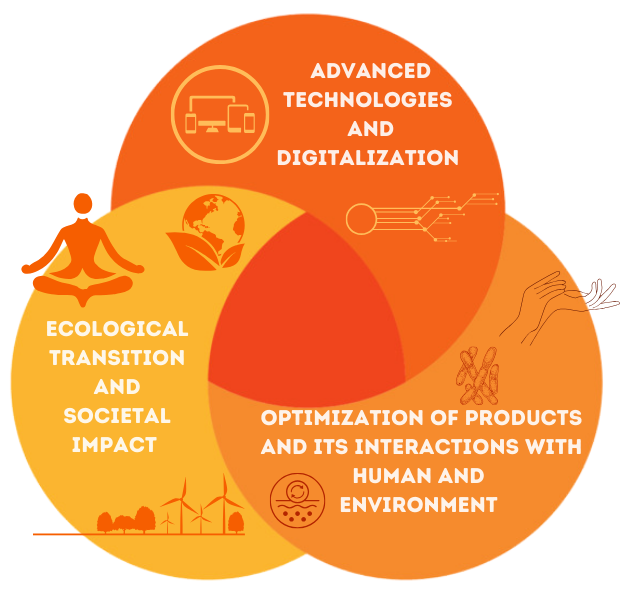Which types of research & innovation?

- Ecological Transition and Societal Impact
Practices and technologies promoting sustainability, resource conservation, and improving carbon footprint and consumer well-being.
Environmental impact reduction, traceability, supply chain structuring, sustainable product development, recycling, upcycling, eco-design, reuse and reduction technologies, bulk distribution, biodegradability.
Resource consumption reduction, decarbonization, water/electricity savings, life cycle assessment (LCA), waste treatment.
Societal impact, emotion, sensory perception (olfactory, tactile, visual, auditory), neurosciences, mental health.
Development of cosmetopea, biosourcing, use and transformation of biomass and agricultural by-products, algae, regeneration, biopolymers, biomimicry studies, biodiversity studies.
- Optimization of Product, Human, and Environmental Interactions
Analysis and management of interactions between products and biological targets, as well as their impact on humans and the environment (skin, nails, hair, cutaneous microbiome, and the environment).
Safety, toxicology, ecotoxicology, pollution, microbiology, cutaneous microbiome, preservation, interactions, content/container transfer, material physics.
Formulation, bioactives, encapsulation, vectorization, targeting, stability, galenics, rheology.
Biological activities, skin models, in vivo, ex vivo, in vitro, genomics, characterization, analytical chemistry, testing, efficacy demonstration, physiology, imaging, sensory analysis, photonic biology.
- Advanced Technologies and Digitalization
Technological and digital innovations to optimize processes and product development, improve production, industrialization, and the user experience.
Eco-processes, eco-extraction, NaDes (Natural Deep Eutectic Solvents), supercritical solvents, green technology, green chemistry.
Nanotechnology, biotechnology.
Robotics, mechatronics, automation, Industry 5.0, supply chain, 3D printing, rapid prototyping.
Digital, machine learning, AI, virtual/augmented reality, blockchain, IoT/connected factories, digital twins, metaverse, predictive tools.
Data analysis, big data, algorithms, e-commerce, personalization.
